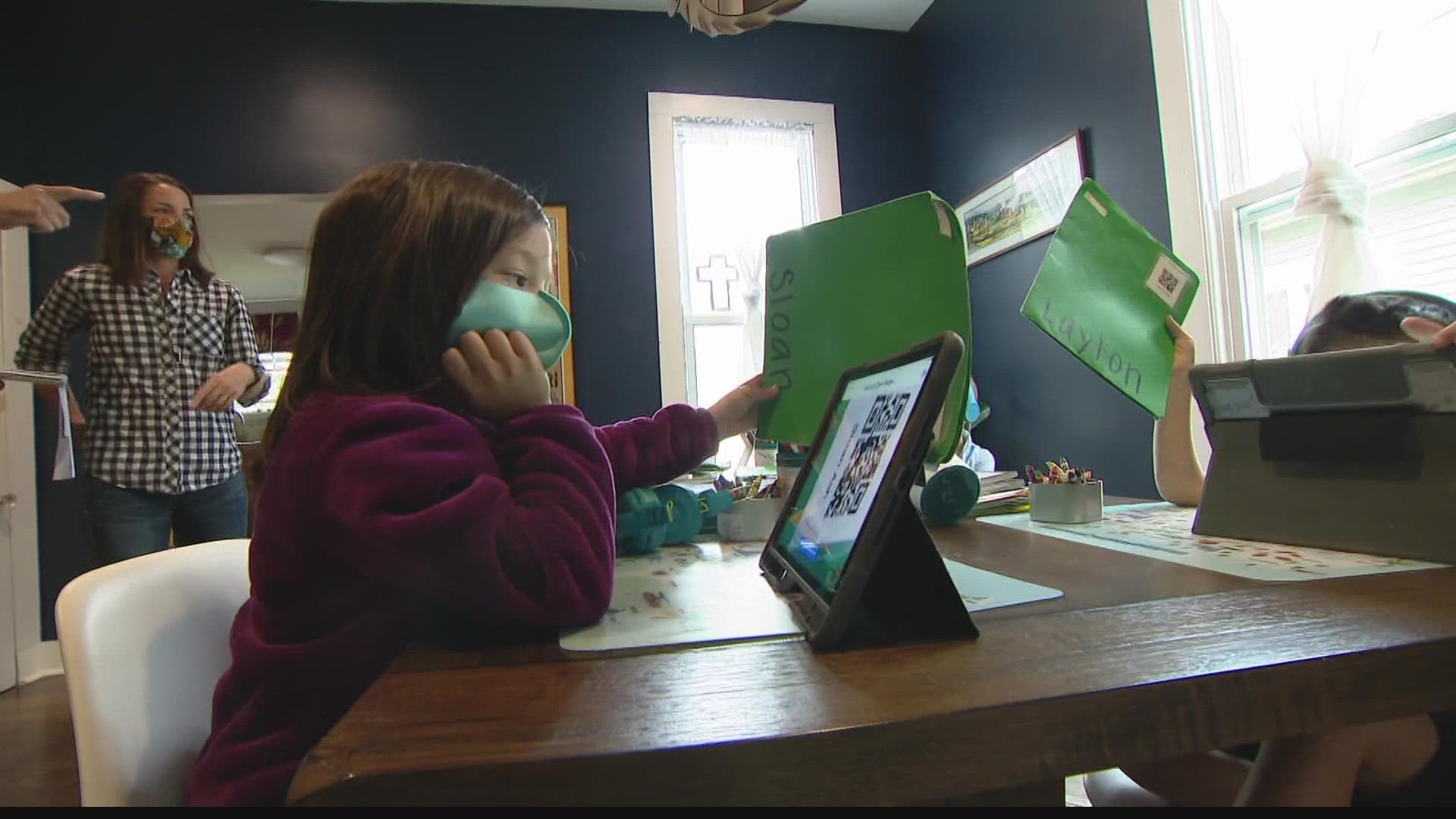GREENWOOD, Ind. — We have all heard of the term “helicopter parents” to describe those parents who seem to be constantly hovering over their children’s every move. 13News Education Expert Jennifer Brinker from Greenwood Middle School joined us on 13Sunrise this week to talk about how you can allow your child to learn from mistakes.
Matthew Fultz - WTHR: Is being a helicopter parent a bad thing?
Mrs. Brinker: Honestly, I don’t think being a helicopter parent, watching over everything your child does, is the biggest problem. I would argue that the new version of that is the “snow plow parent.” That is the parent that tries to remove every obstacle that is in the way for their child. Our job as parents and as educators is to prepare our kids for the path, not prepare the path for our kids. We have to teach them how to overcome adversity, not do everything for them.
Matthew Fultz - WTHR: What do you feel is the biggest detriment that can come from being a snow plow parent?
Mrs. Brinker: I worry about the ability of kids who are so micromanaged to become employable adults. I know it is hard to see your kids struggle. I know it is difficult to teach them to bounce back, but unless you want them living in your basement when they are 40, they are going to have to learn to fly solo and that comes with making mistakes from time to time.
Matthew Fultz - WTHR: Where do you as an educator see this the most? Are there tasks that kids should be doing and aren’t?
Mrs. Brinker: Absolutely. I would say something as simple as managing their grades. When we were younger, our parents found out about our grades when we brought our report cards home. Parents now have access to check those online through management platforms like PowerSchool and SkyWard 24/7. While it is a good thing that parents have access to this, it has taken the job away from the kids to contact their teachers about their own missing work. At school, we find that it is the parents who are sending the email wanting clarification on a grade or missing assignment. School is the student’s job, so they have to be the one to manage that at some point. Resist the urge to email the teacher on your child’s behalf, but help coach your child on how to compose that email. Also let them know that there are consequences that they might not like and that they have to deal with those as well.
Matthew Fultz- WTHR: Is this something that schools are seeing - kids not handling consequences of their actions well?
Mrs. Brinker: Unfortunately, yes. We are seeing more and more often that parents are calling to complain about their child having consequences for misbehavior than working with the school to come up with solutions. At the end of the day, this sends a message to kids that they don’t have to follow directions, which again is concerning for their future.
Matthew Fultz - WTHR: Any final advice for parents?
Mrs. Brinker: Just keep in mind that our job is to prepare our kids for life. Sometimes it is easier to just do the dishes yourself, take care of the laundry, handle the teacher communication. But at the end of the day, we are doing kids a disservice if we don’t teach them to do these things. Schools don’t just help with academics, but schools are a space where kids can learn and make mistakes with a safety net, but you have to let them do some of these things on their own.

